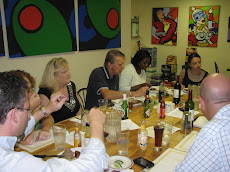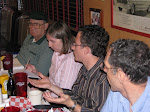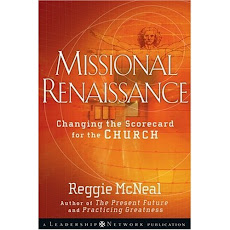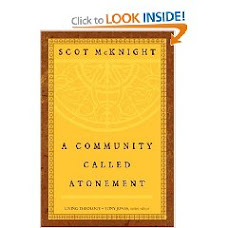 “The poverty in the West is a different kind of poverty---it is not only a poverty of loneliness but also of spirituality. There’s a hunger for love, as there is a hunger for God… In the West there is loneliness, which I call the leprosy of the West. In many ways it is worse than our poor in Calcutta.”
“The poverty in the West is a different kind of poverty---it is not only a poverty of loneliness but also of spirituality. There’s a hunger for love, as there is a hunger for God… In the West there is loneliness, which I call the leprosy of the West. In many ways it is worse than our poor in Calcutta.”- Mother Teresa
I am writing this on “Black Friday,” the most important shopping day in the American economy. My wife (who is shopping with a relative as I write this :^) shared with me a little bit from a book she is reading this morning. We share what we are reading with each other a lot.
In his book, Who’s Your City?: How the Creative Economy Is Making Where to Live the Most Important Decision of Your Life, Richard Florida counters some of the theory that the world is “flat” (that you can succeed anywhere you live due to the Internet) and says that innovation and investment tend be clustered in what he calls “mega-regions.” (He counts “So-Flo,” including Miami, Orlando and Tampa, as such a region.) Why is that? One reason is relationship. Even with the Internet, entrepreneurs and inventors want to see what they are investing in and who they are sharing ideas with in person, and they don’t often like to travel far to do it.
Florida talks about why place matters in a variety of contexts. Here is one fascinating bit of data he includes:
“A 2007 study by economist Nattavudh Powdthavee of the University of London used survey data to estimate the monetary value of frequently seeing friends and relatives. The study found that seeing friends or relatives in person almost every day is worth more than six figures in additional income. For example, Powdthavee found that if you relocate from a city where you regularly see your family and friends to one where you would not, you would need to earn $133,000 just to make up for the lack of happiness you feel from being far from those people. Powdthavee drives home the importance of making a conscious choice about your time when he writes, ‘Since it normally requires both time and effort to achieve either higher income or a stable social relationship with someone, the weight attached to each individual’s investment decision thus depends on the type of possession - money or friendship – that he or she believes will yield a larger impact on happiness than the other.’”
How does this relate to our understanding and practice of emerging and missional church? Can "critical mass" for mission be jump started in our church communities through the idea innovations and interpersonal time investments of the spiritual entrepreneurs in our friendship networks? What ideas are we sharing, and who are we investing in? Also, as our consumer driven Western society continues its economic melt down, maybe it is time to reassess our priorities. In his book Everything Must Change, Brian McLaren writes, “First, Jesus addresses the law of progress through rapid economic growth. In its place, he offers the law of good deeds for the common good….Second, Jesus overturns serenity through possession and consumption. Instead, he envisions satisfaction through gratitude and sharing.” That can be our vision this Thanksgiving and Christmas (otherwise known as the great retail season) and that can be our vision for God’s church. How do we invest our time…in people or things? What is the result, not only to our own happiness and effectiveness but to the happiness of those around us? I am not saying that reward for hard work is wrong. I think what the Gospel tells us though is that there might be something missing from the so-called “American Dream” that can be found when we truly seek first the Kingdom of God, starting with Jesus and His people, our relatives and friends, and extending through an ever expanding social network to those on the margins of society.
My wife will come home and it will be a big deal if she bought even one ridiculously discounted garment (she rarely buys much of anything when she goes shopping, and she doesn't go shopping much). But the time spent with our relative will have been (in the words of the commercial) priceless.
This week, a friend of mine shared his yearning to be more intentional about having a time of regular worship with his wife and kids. Just such a place and time can be where the spark of revival starts.
Join us this Tuesday http://emergentchristian.meetup.com/29/calendar/9151159/ as we continue to share our thoughts about Alan Hirsch’s The Forgotten Ways and “community around natural discipling friendships, worship as a lifestyle, and mission in the context of everyday life.”
Steve













1 comment:
wow...that is seriously deep...where and with whom are we expending our precious time...is it for greater community or greater economic security...or is it just mind numbing activity??
Thank you my friend...for being you and for challenging the norm..with your life and your thoughts.
Post a Comment